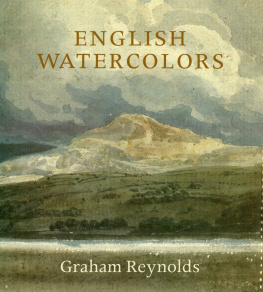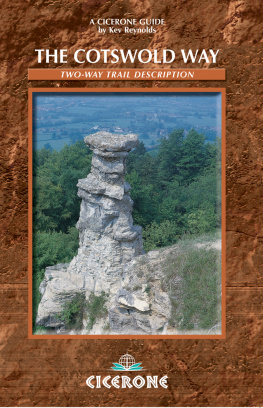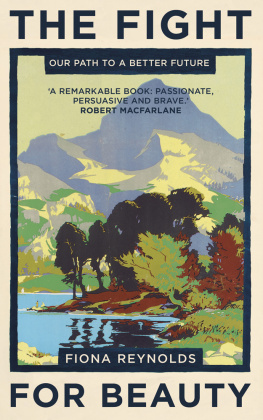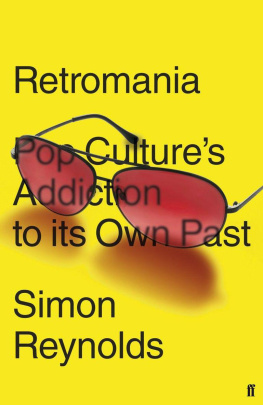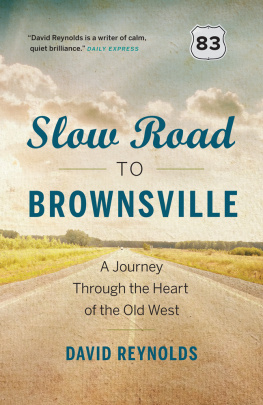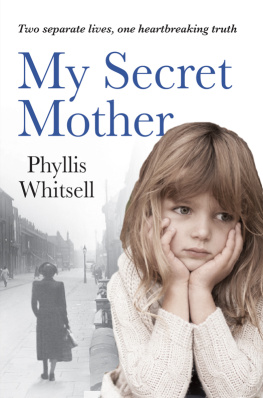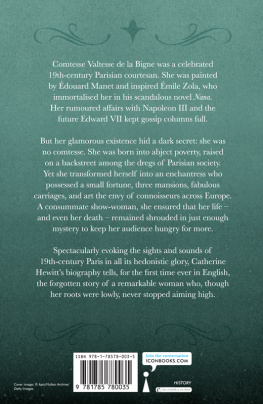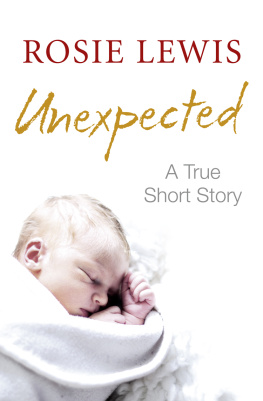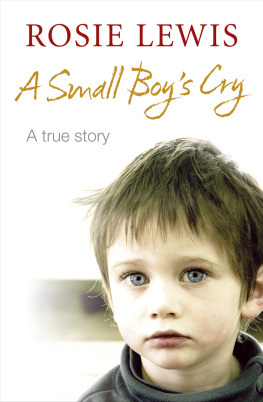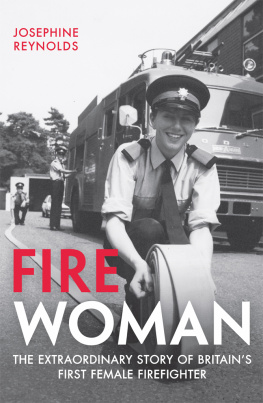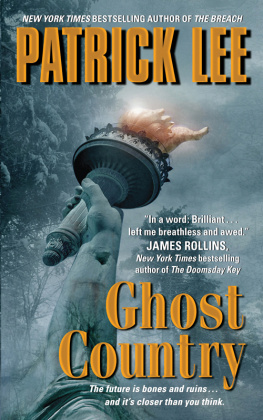Title Page
That Which Was So Fair
A Ghost Story
by
Tony Reynolds
Publisher Information
First edition published in 2016 by
MX Publishing
335 Princess Park Manor
Royal Drive,
London, N11 3GX
www.mxpublishing.co.uk
Digital edition converted and distributed by
Andrews UK Limited
www.andrewsuk.com
Copyright 2016 Tony Reynolds
The right of Tony Reynolds to be identified as the author of this work has been asserted by him in accordance with the Copyright, Designs and Patents Act 1998.
All rights reserved. No reproduction, copy or transmission of this publication may be made without express prior written permission. No paragraph of this publication may be reproduced, copied or transmitted except with express prior written permission or in accordance with the provisions of the Copyright Act 1956 (as amended). Any person who commits any unauthorised act in relation to this publication may be liable to criminal prosecution and civil claims for damage.
All characters appearing in this work are fictitious. Any resemblance to real persons, living or dead, is purely coincidental. The opinions expressed herein are those of the author and do not necessarily reflect those of MX Publishing or Andrews UK.
Cover design by www.staunch.com
Dedication
To Sandra
I seem to have loved you in numberless forms, numberless times, In life after life, in age after age forever.
Rabindranath Tagore, Tr. William Radice
Chapter 1
It was very early in the morning as John, our man, drove me in the trap beside the shores of Ullswater. I looked sombrely out across the lake, which the chill had covered with a low-lying mist. Beyond it, Barton Fell rose steeply; appearing dark purple and grey in the dawning light but with its topmost ridge lit by the sun. My journey had begun, but I was filled with misgivings. I had made a difficult decision regarding the course of my life: my instincts had urged me to remain at home with my dear parents and no doubt in a year or two as a personable enough young woman with some prospects make an advantageous marriage. Against this I had to set entrancing visions of the wide world and of the multitudes of peoples it contained and of the great happenings and discoveries that made such turmoil of our age - visions conjured up by the books that I had so eagerly devoured. I must not, I had told myself fiercely, resign myself to domesticity and a narrow circle of acquaintance until I had seen as much as was possible for me.
Practical considerations put limits to my ambition of course, but I had scanned the advertisements in the papers and had applied for and been awarded a position in the Fen Country. My adventures were to begin almost immediately, for I had never travelled on the railway, and now was about to take a journey by it almost to the other end of England.
At Penrith railway station John and I waited for a little time before the train from Carlisle came into sight. My first intimation of its arrival was a plume of steam in the distance; then there came a clattering noise from the rails, growing louder and louder. Finally the locomotive itself was upon us. I was almost overwhelmed by the noise and commotion that accompanied its advent. The deep-throated, repeated dull blows of the engine; the squealing of the brakes and the enveloping cloud of white vapour as it drew to a halt was both exhilarating and terrifying.
Immediately following this came a clamour from the passengers as those arriving collected their belongings and those departing said their farewells. John helped a porter lift my trunk onto the roof with the other luggage then returned to touch his cap and bid me goodbye. I thanked him sincerely for his help and assured him that I would mention him when I wrote to my parents.
At last I was able to clamber up the steps into the carriage. I found a seat by a window and facing the direction of travel where I would get the best view and composed myself for the journey. A few minutes passed; there was a warning shriek from the whistle and the train began to move. Slowly at first, as the locomotive took up the strain of moving the immense weight of the vehicle, then faster and yet faster until I was moving at a greater rate than I ever had in my life and the landscape flew past the window.
The tenseness of my body relaxed and I smiled openly. I am not one of those young ladies who affect incomprehension of progress and machinery. I pride myself on being a modern woman who is not over-fond of the unclean and superstitious days of old and is grateful for the gifts that Science has given us. About an hour later, with an increase in noise and swirling smoke, we plunged into the great cutting that runs through Shap Fell. A few years ago, I had read in my fathers Westmorland Gazette of the titanic efforts of thousands of navvies who had hewn through solid rock to complete the work. My carriage fell into near-darkness as we raced through that awesome gorge.
An hour passed until on my right I saw appear the peaceful waters of Morecombe Bay and a further hour went by before we drew into Lancaster station, where it was necessary for me to change to a train operated by the London and North-Western Railway company. I became a little flustered trying to find a porter to move my trunk, but he was extremely helpful and led the way to another platform where stood the locomotive that would take me on the long run to London. This engine was an even more tremendous sight than the one from which I had just alighted, being much larger and towering above me. Painted a glossy black and gently hissing steam it seemed like a powerful but presently quiescent beast. I paid the porter and again found a seat by a window where I settled myself for the next part of my journey.
A little time had to pass before our departure which I waited out with as much patience as I could muster. I heard the five minutes bell rung and subsequently wondered at how long such a short time could seem. Finally, at the piercing whistle, we were on the move; as before initially slowly but then with increasing velocity until I could almost believe I was flying. Fields, towns, woods and hills speeded by for hour after hour. Sometimes we mounted great viaducts and I saw a river far below; sometimes wooded banks rose above us and shielded the view. I must confess I grew rather blas as time went on and fancied myself quite the experienced traveller!
As my initial exhilaration abated, so my appetite, suppressed for some time, increased. In the past, in the rare and exciting expeditions to see friends and relatives in distant places, we used the stage-coach or the fly-wagon, and these stopped regularly for both the horses and the passengers to take refreshment. There was no such provision on the railway, where speed was King. My mother had given me a small packet of refreshments, which with her characteristic forethought were chosen so as to be easy to eat with decorum on a moving vehicle. Turning my head towards the window I was able to satisfy my hunger with adequate discretion.
The other passengers in my carriage came and went at each station. There was no-one as young as myself travelling unaccompanied; although at Runcorn a lady and her daughter, who was of about my age, joined us. Most of my fellow-travellers in a first-class carriage seemed to be well-dressed men of business, sometimes talking to one another, sometimes silent and often hidden behind a copy of the morning paper. At one point two gossipy older ladies boarded. Perhaps fortunately, the noise of our progress made it impossible to overhear most of their conversation. I could not help but notice that by the time we left Crewe, none of those that had boarded with me at Lancaster remained. I was the only one - at least in my carriage! - making the entire journey of over two hundred miles from the terminus to the capital.
Next page

